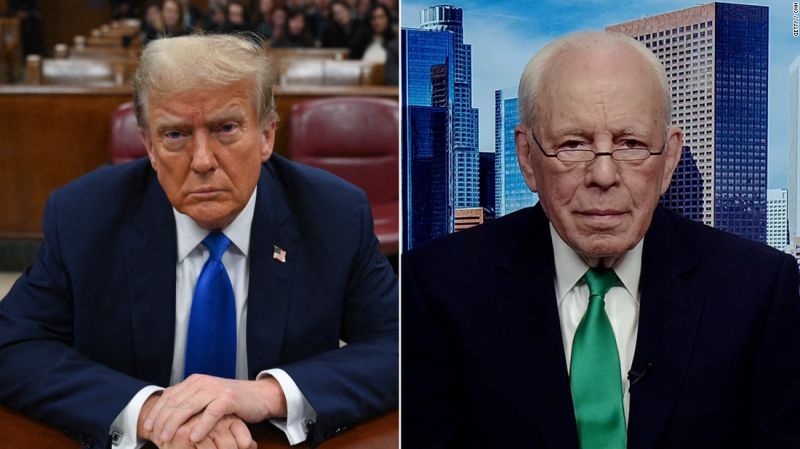John Dean, who served as White House counsel under President Richard Nixon during the Watergate scandal, believes that if Trump were to testify in the hush money trial, he would likely face questions about his involvement in the payments made to women who alleged affairs with him. Dean points out that Trump has a history of making contradictory statements, which could be used against him in court. Additionally, Dean suggests that Trump may have trouble maintaining consistency in his testimony due to his propensity for lying and exaggerating the truth.
Dean also speculates that Trump would likely be questioned about his knowledge of the campaign finance laws that were allegedly violated in the hush money case. Given Trump’s lack of familiarity with legal matters and his tendency to rely on his personal lawyer, Dean believes that the former president may struggle to provide detailed and accurate answers to such questions. Furthermore, Dean notes that Trump’s penchant for not paying attention to details could also hinder his ability to recall specific events or conversations related to the case.
In addition to questions about the hush money payments and campaign finance laws, Dean believes that Trump may be asked about his interactions with his former lawyer, Michael Cohen, who was convicted in connection with the hush money scheme. Dean suggests that Trump’s close relationship with Cohen could raise additional issues for the former president if he were to testify in court. Furthermore, Dean speculates that Trump’s tendency to distance himself from individuals who have fallen out of favor with him could create further complications in his testimony.
While Dean is doubtful that Trump will ultimately testify in the hush money trial, he emphasizes that if the former president does take the stand, he will likely face intense scrutiny and a barrage of challenging questions. Dean warns that Trump’s history of stretching the truth, making contradictory statements, and displaying a lack of attention to detail could all come back to haunt him in court. Ultimately, Dean believes that Trump’s testimony could potentially incriminate him further and damage his credibility.
Despite Dean’s skepticism about Trump testifying in the hush money trial, he acknowledges that anything is possible in the legal arena. If Trump were to take the stand, Dean believes that the former president would need to be prepared for an intense and confrontational examination by prosecutors. Dean stresses that the consequences of Trump’s testimony could have far-reaching implications for his legal future and overall reputation. Ultimately, Dean cautions that any missteps or inconsistencies in Trump’s testimony could have serious repercussions for his legal defense and public image.
Overall, John Dean’s analysis of the potential implications of Trump testifying in the hush money trial highlights the complex legal challenges that the former president may face. Dean’s insights into Trump’s history of dishonesty, lack of attention to detail, and problematic relationships with key individuals involved in the case underscore the potential pitfalls of Trump taking the stand. While Dean acknowledges the uncertainty of whether Trump will ultimately testify, he emphasizes the importance of thorough preparation and strategic decision-making in order to navigate the legal complexities of the trial effectively.













